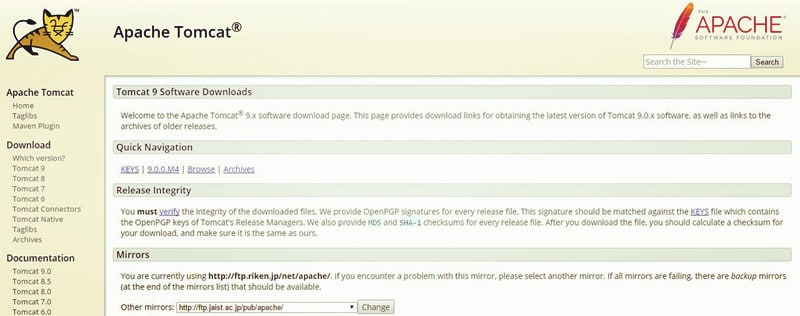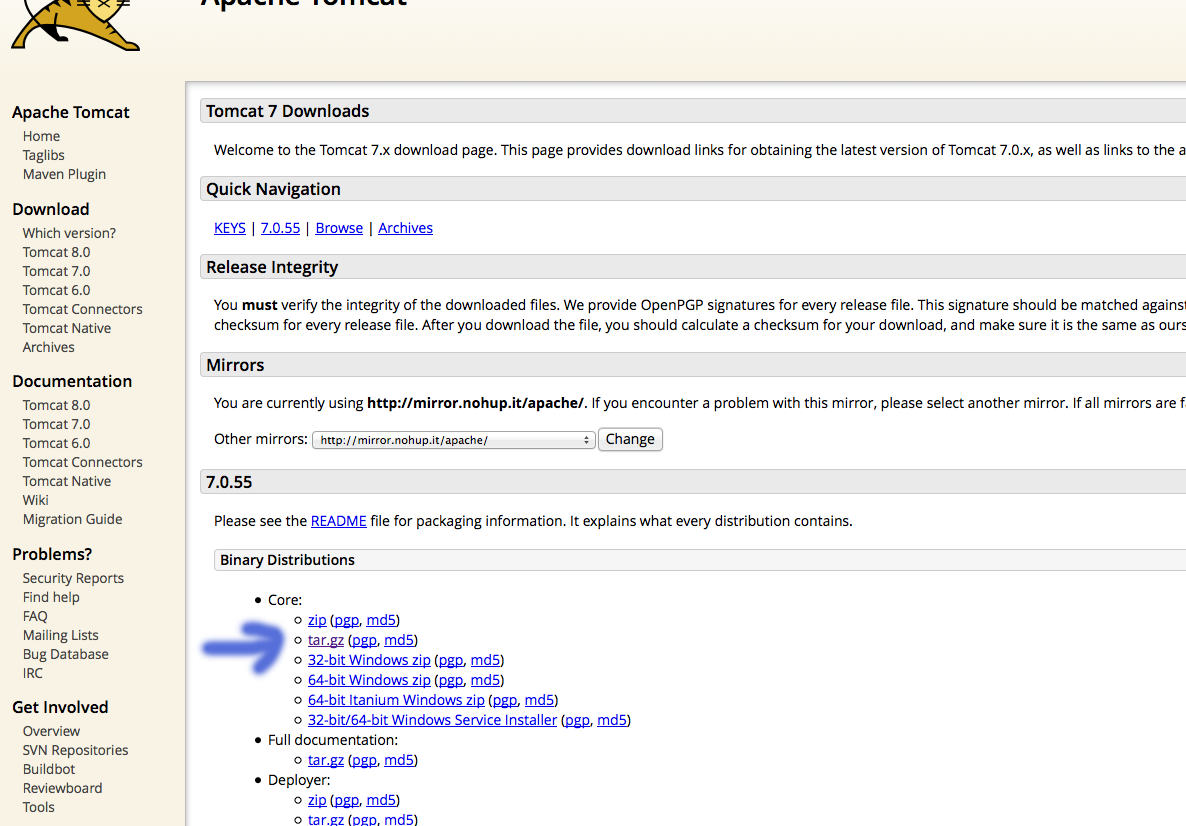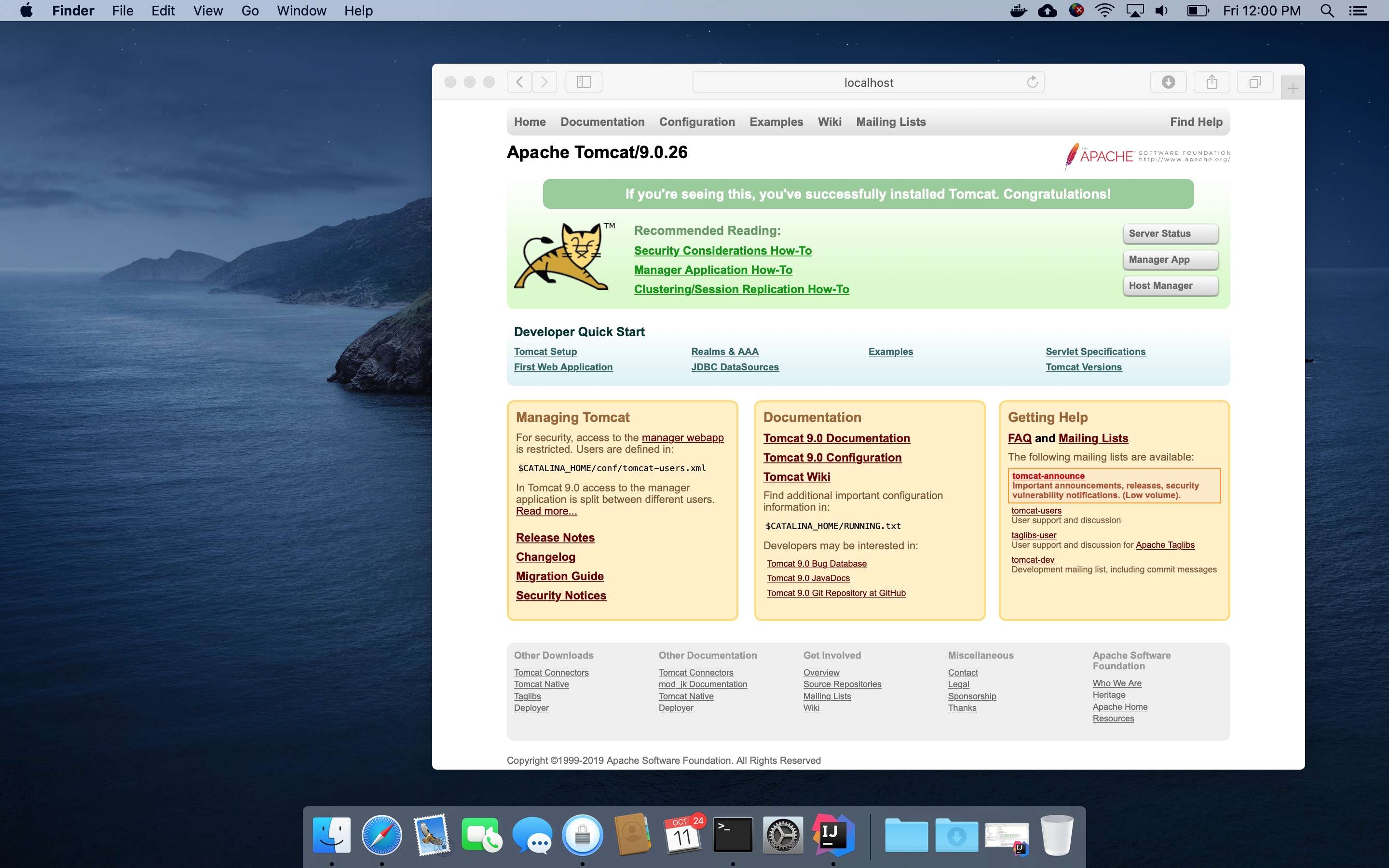Bitnami Tomcat Stack Installers Bitnami native installers automate the setup of a Bitnami application stack on Windows, Mac OS and Linux. Each installer includes all of the software necessary to run out of the box (the stack). The process is simple; just download, click next-next-next and you are done! Free apache tomcat 7.0.47 download software at UpdateStar - Apache Tomcat is a web server that is an open source software implementation of the Java Servlet and JavaServer Pages technologies. 1,746,000 recognized programs - 5,228,000 known versions - Software News.
The Servlet 4.0 specification is out and Tomcat 9.0.x does support it. Time to dive into Tomcat 9.
- Installing Tomcat 6.0 on Linux, Mac OS X and Windows Apache Tomcat is a flexible, powerful, and widely popular application server and servlet container, which the Apache Software Foundation has developed since 1999, first under the Jakarta project, and now as its own top-level project. Users value Tomcat for its fast start-up, reliable, mature, and fully open codebase, and highly extensible.
- Here is what I did to download and install Apache Tomcat 7.0.32 on my Windows 7 local computer. Visit Apache Tomcat home page with a Web browser, and click the 'Download' link under the 'Tomcat 7.0.32 Released' section.
- Apache tomcat free download - BitNami Tomcat Stack, Apache, Apache OpenOffice, and many more programs.
Prerequisite: Java
Since OS X 10.7 Java is not (pre-)installed anymore, let’s fix that first. As I’m writing this, Java 11.0.1 is the latest version and AdoptOpenJDK is one of the best places to find Prebuilt OpenJDK Binaries. Easy to follow details about how to install OpenJDK are available here. Anyway, after opening the Terminal app again,
hopefully shows something like this:
Whatever you do, when opening Terminal and running ‘java -version’, you should see something like this, with a version of at least 1.8.x I.e. Tomcat 9.x requires Java 8 or later.
JAVA_HOME is an important environment variable, not just for Tomcat, and it’s important to get it right. Here is a trick that allows me to keep the environment variable current, even after a Java Update was installed. In ~/.bash_profile, I set the variable like so:

Tomcat 7 Downloads For Windows

Installing Tomcat
Here are the easy to follow steps to get it up and running on your Mac
- Download a binary distribution of the core module: apache-tomcat-9.0.35 from here. I picked the tar.gz in Binary Distributions / Core section.
- Opening/unarchiving the archive will create a new folder structure in your Downloads folder: (btw, this free Unarchiver app is perfect for all kinds of compressed files and superior to the built-in Archive Utility.app)
~/Downloads/apache-tomcat-9.0.35 - Open to Terminal app to move the unarchived distribution to /usr/local
sudo mkdir -p /usr/localsudo mv ~/Downloads/apache-tomcat-9.0.35 /usr/local - To make it easy to replace this release with future releases, we are going to create a symbolic link that we are going to use when referring to Tomcat (after removing the old link, you might have from installing a previous version):
sudo rm -f /Library/Tomcatsudo ln -s /usr/local/apache-tomcat-9.0.35 /Library/Tomcat - Change ownership of the /Library/Tomcat folder hierarchy:
sudo chown -R <your_username> /Library/Tomcat - Make all scripts executable:
sudo chmod +x /Library/Tomcat/bin/*.sh

Tomcat 9.x

Starting and stoping Tomcat works with executing the provided scripts, like so:/Library/Tomcat/bin/startup.sh
/Library/Tomcat/bin/shutdown.sh
Apache Tomcat Download For Mac

Finally, after your started Tomcat, open your Mac’s Web browser and take a look at the default page: http://localhost:8080